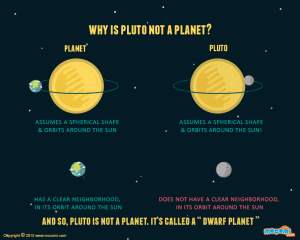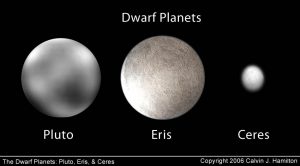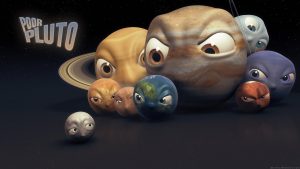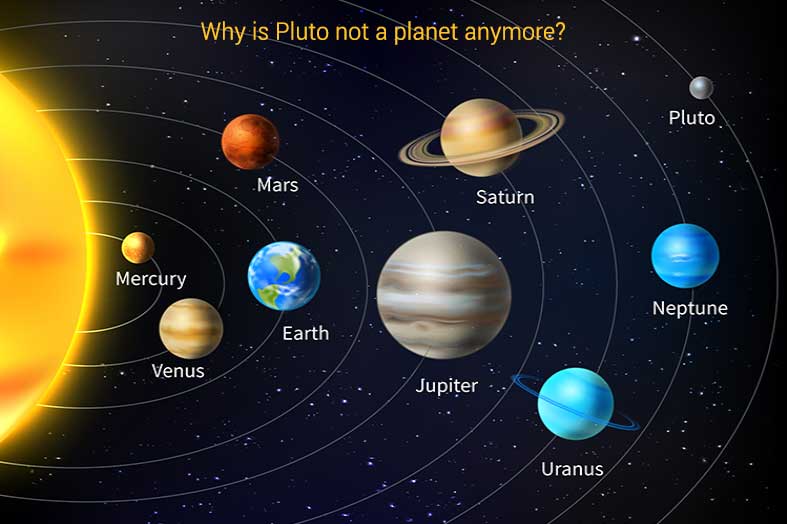Why Isn’t Pluto a Planet?
Pluto’s a planet. Right? Well no, not really.
At the end of the solar system Pluto lies, with less than one percent of the mass than Earth’s. Most people thought Pluto lost its planet status just because it was much smaller than the other eight planets. But that’s actually wrong.

In the gap between Mars and Jupiter, there are hundreds of little planets that make up the Asteroid Belt. Scientists once classified the first four little planets in the Asteroid Belt as actual planets, too. They are called Ceres, Pallas, Juno, and Vesta. But after the discovery of a thousand more Junos and Vestas they decided otherwise. Now as for Pluto, the story is similar. Pluto has a group of comets around it called the Kuiper Belt.
For a long time, people learned the nine planets: Mercury, Venus, Earth, Mars, Jupiter, Saturn, Uranus, Neptune, and Pluto. But as astronomers started discovering more and more little planets of ice, they decided not to de-classify Pluto as a planet until they found a planet in the Kuiper Belt bigger than Pluto, and sure enough they did. In 2006 they discovered Eris, a bigger mass than Pluto. And Pluto officially became a “dwarf planet.”

A planet is a celestial body moving in an elliptical orbit around a star. Pluto is in an elliptical orbit around the sun. Neil deGrasse Tyson also says “Planets don’t have tails.” Pluto doesn’t have a tail.
But another reason people think Pluto is not a planet and is a comet is because it’s made of ice. According to The Washington Post, “When the New Horizons spacecraft arrived at Pluto in 2015, the probe revealed the dwarf planet’s true nature: Pluto is a frozen lump.” There is nothing saying planets can’t be made of ice even though comets usually are.
Some of the factors are there for Pluto to be a planet but it is still classified as a dwarf planet.
Even though Pluto may not be planet it still holds a special place in the solar system.








